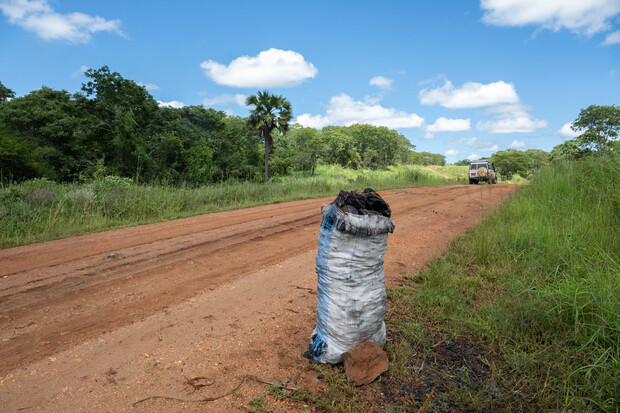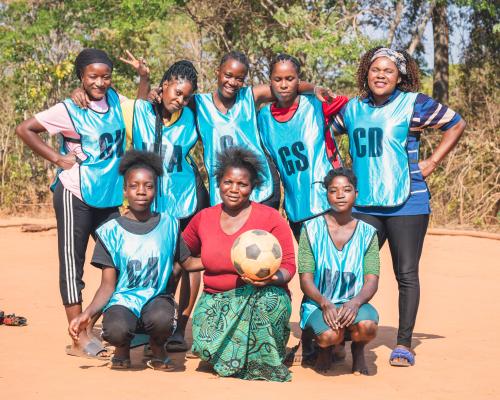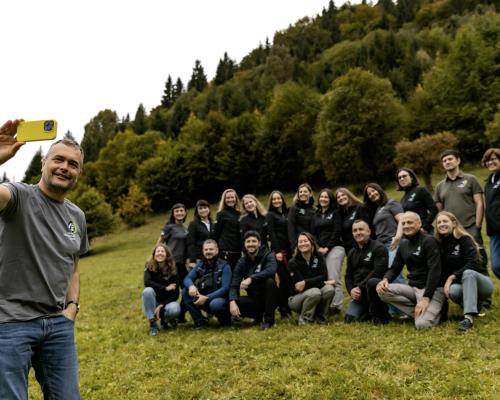Through grassroots microfinance groups known as Community Conservation Banks, FZS supports the financial independence of people living near protected areas—while ensuring that this development is ecologically sustainable.
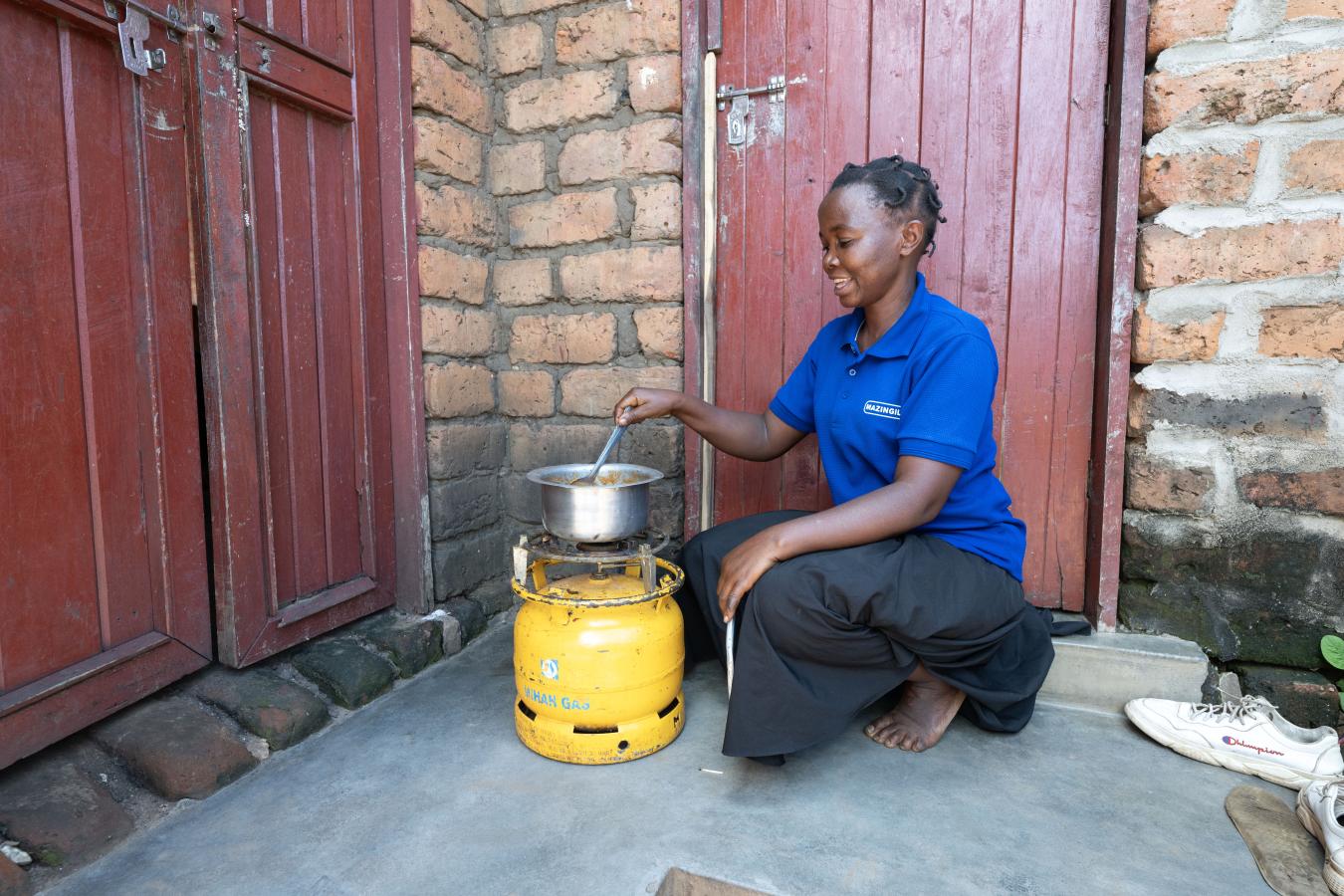
Environmental protection starts small
This article first appeared in the May 2025 edition of Gorilla Magazine.
Forests aren’t just trees — they’re essential to our planet’s health. They regulate rainfall, clean the air, provide habitat for wildlife, and offer vital resources for rural communities here in Tanzania. But widespread deforestation and unsustainable practices like cutting trees for firewood and charcoal are placing our environment—and our future—at risk.
In the remote Tanganyika District of Tanzania lies Kapalamsenga, a small village with a bold vision. Located 15 kilometers from the shores of the stunning Lake Tanganyika and surrounded by lush forests, this peaceful community of 6,939 people is taking action against environmental degradation. Kapalamsenga sits within an 814-hectare forest reserve. Residents rely on agriculture for subsistence and trade, and on small-scale livestock keeping.
But this idyllic setting faces a serious challenge: heavy dependence on firewood and charcoal for cooking. For years, women have walked to the forest twice a week to collect firewood—a task that is physically demanding, time-consuming, and steadily depleting the very resource they rely on.
That’s where the Tujitegemee Community Conservation Bank (COCOBA) comes in—a group of 24 dedicated members, 14 women and 10 men, united by one goal: to transition to cleaner, more sustainable cooking fuel by May 2025.
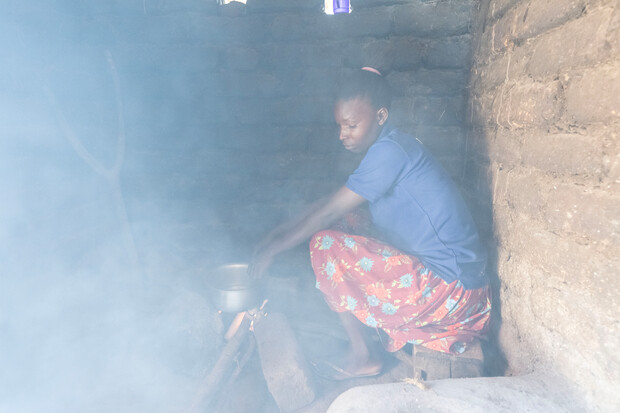
Irene Fanuel prepares a traditional meal over a wood fire. The smoke inside the home is harmful to health.
With a clear understanding of the environmental harm caused by traditional cooking methods, this group is taking initiative. Each member contributes 2,000 Tanzanian Shillings per week (about $0.70 USD) to a communal savings fund. It’s a modest sum—but in a community where every shilling counts, it represents a real sacrifice. Their goal: to ensure every member has access to a gas stove within a year.
Cooking gas in Tanzania is sold in refillable canisters—similar to the camping gas commonly used in Europe. While gas is still a fossil fuel, it’s significantly more energy-efficient than firewood or charcoal. The upfront cost of a stove and a gas cylinder is about 45,000 Shillings (roughly $16 USD), with refills costing half that. For families in Kapalamsenga, this is a major investment. But the benefits are clear: gas stoves are faster, cleaner, and more efficient.
We embraced this initiative wholeheartedly—gas is so much quicker than charcoal or wood. It really makes cooking easier
For the women of Kapalamsenga, switching to gas means less time spent gathering wood and better indoor air quality—less smoke means better health.
Some might ask: why not switch directly to renewable energy like solar? Why settle for gas at all? Unfortunately, in remote rural areas of Tanzania, that’s not yet a realistic option. Materials are scarce, and for families who must save up for months to buy a $16 stove, the cost of a solar-powered cooking setup is simply out of reach.
Although FZS is not directly implementing the gas initiative, we enabled it through the structure of the Tujitegemee COCOBA. Across Tanzania, FZS has helped establish 345 COCOBA groups (as of December 2024). We provide the framework: materials like cash boxes and receipt books, and training on how to manage a micro-cooperative bank. We also offer comprehensive environmental education—because while these banks are designed to improve livelihoods, they must also align with conservation goals.
So far, around 30 households in Kapalamsenga have made the switch from firewood to gas. The goal is for the entire village to follow. It’s still a long road ahead. But Irene and her fellow members are determined to show that sustainable, positive change is possible—and that through collective effort, we can all make a difference.
As their motto says:
“The environment is life—let’s protect and preserve it so we can all thrive.”
–
The author of this article, Bhoke Mtatiro-Mgeni, is from Tanzania and works as a Development and Communications Manager.
